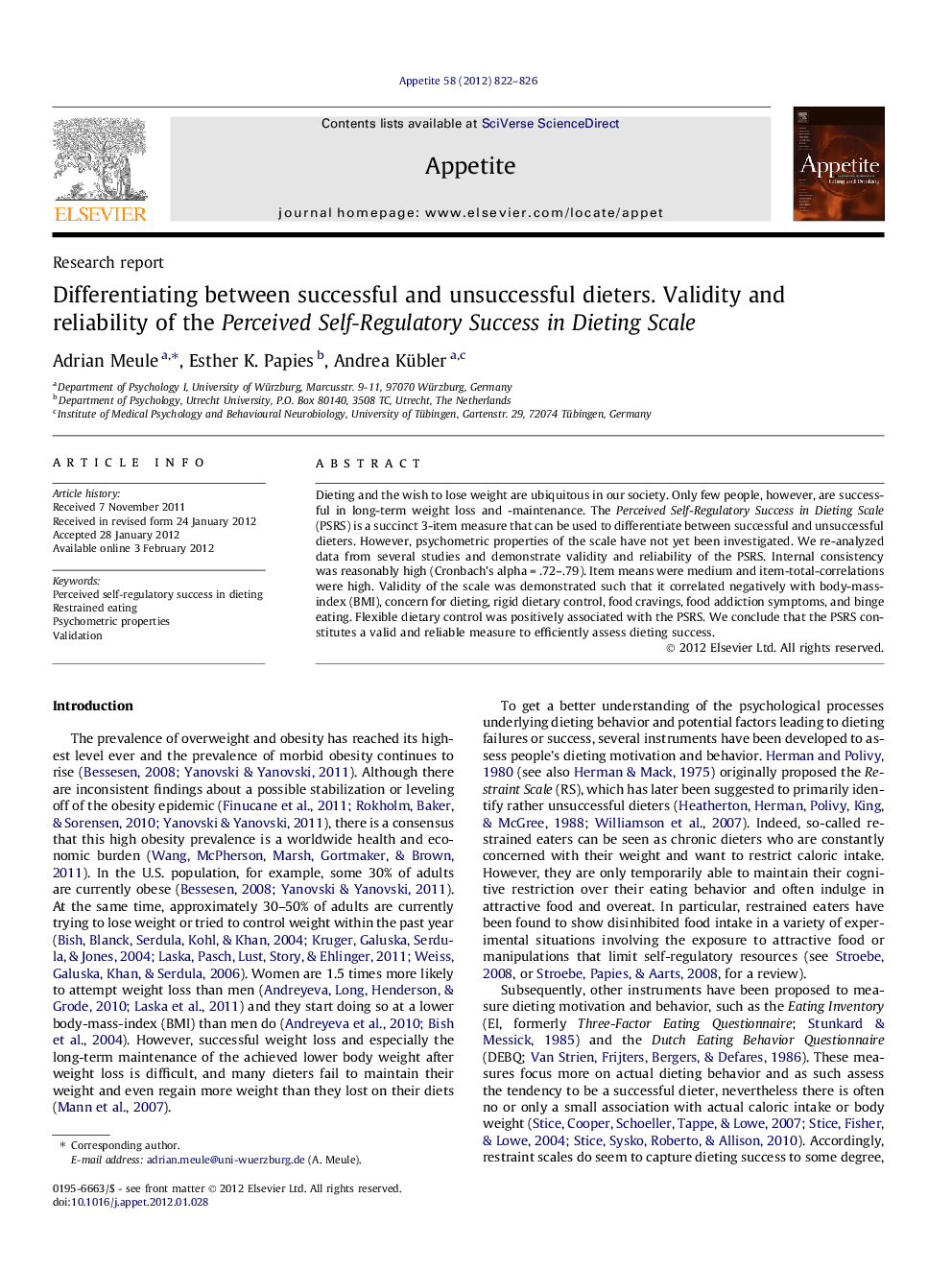| Article ID | Journal | Published Year | Pages | File Type |
|---|---|---|---|---|
| 940389 | Appetite | 2012 | 5 Pages |
Dieting and the wish to lose weight are ubiquitous in our society. Only few people, however, are successful in long-term weight loss and -maintenance. The Perceived Self-Regulatory Success in Dieting Scale (PSRS) is a succinct 3-item measure that can be used to differentiate between successful and unsuccessful dieters. However, psychometric properties of the scale have not yet been investigated. We re-analyzed data from several studies and demonstrate validity and reliability of the PSRS. Internal consistency was reasonably high (Cronbach’s alpha = .72–.79). Item means were medium and item-total-correlations were high. Validity of the scale was demonstrated such that it correlated negatively with body-mass-index (BMI), concern for dieting, rigid dietary control, food cravings, food addiction symptoms, and binge eating. Flexible dietary control was positively associated with the PSRS. We conclude that the PSRS constitutes a valid and reliable measure to efficiently assess dieting success.
► Current measures of dietary restraint cannot clearly differentiate between successful and unsuccessful dieters. ► Psychometric properties of the Perceived Self-Regulatory Success in Dieting Scale (PSRS) are presented. ► The PSRS has adequate reliability, validity and item statistics. ► The PSRS can be used to efficiently assess dieting success.
